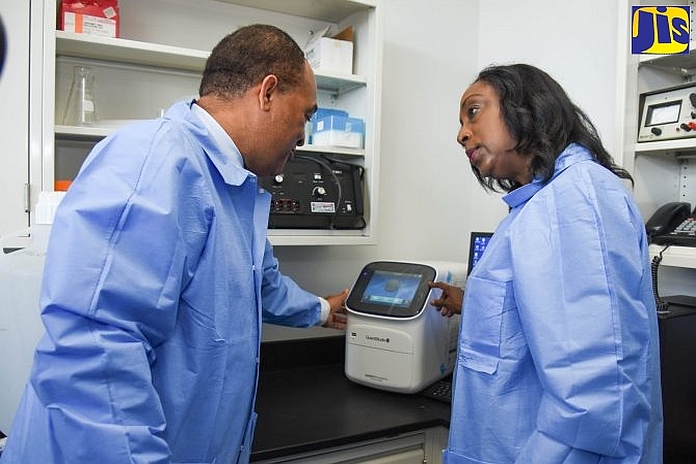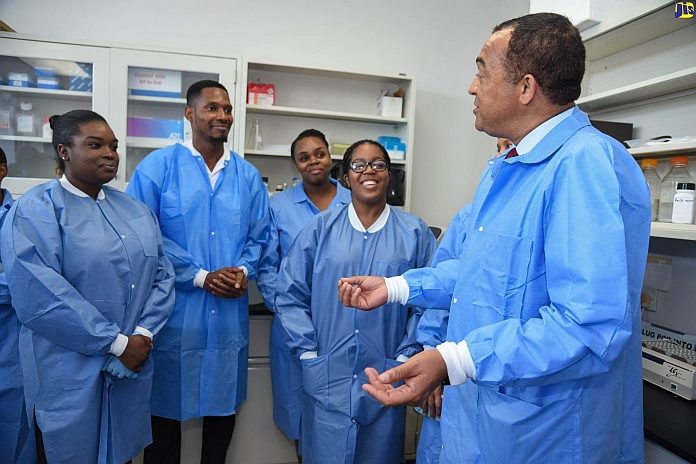By Garfield L. Angus
KINGSTON, Jamaica (JIS) – Minister of health and wellness, Dr Christopher Tufton, disclosure during a tour of the National Influenza Centre (NIC), based at the University Hospital of the West Indies (UHWI), on Monday, February 17, that Jamaica is able to test for the coronavirus COVID-19.
The development follows the training of local laboratory staff by the Pan American Health Organization (PAHO) last week. The tests will be carried out at the NIC in collaboration with the National Public Health Laboratory (NPHL).
Speaking in an interview with JIS News, Dr Tufton hailed the development of the local capacity to test for the infection as “another positive” for the country’s public health system.
“It is very good because we don’t have to send samples elsewhere, which would take a few days. We can now do the test … and decide how long we isolate people and if the isolation has to be elevated to the highest possible level,” he said. “We have to give credit to the medical team and the partnerships that we have established with our partners PAHO, the World Health Organization (WHO), and others.”
Dr Tufton assured that the government is making every effort to build the capacity of the health system to protect the public, should the virus enter the island.
For her part, acting head of the NPHL, Dr Michelle Hamilton, said the NIC offers the most accurate test, noting that the results will be available within ten hours.
“Jamaica is at the cutting edge. Within two weeks of the international declaration of the [novel coronavirus] as a global health emergency, we are able to test,” she noted. Jamaica is among the first countries in the region to develop the capacity to test for the coronavirus COVID-19.
While there have been no cases of the infection on the island to date, the health ministry has been working closely with PAHO to enhance national preparedness and to strengthen the capacity of the national laboratory to detect the virus.

Meanwhile, the ministry is advising the public to observe standard infection prevention and control precautions, especially as it relates to viral respiratory illnesses. These include frequent hand washing, covering coughs and sneezes with disposable tissues or clothing, and avoiding contact with persons who display symptoms.





